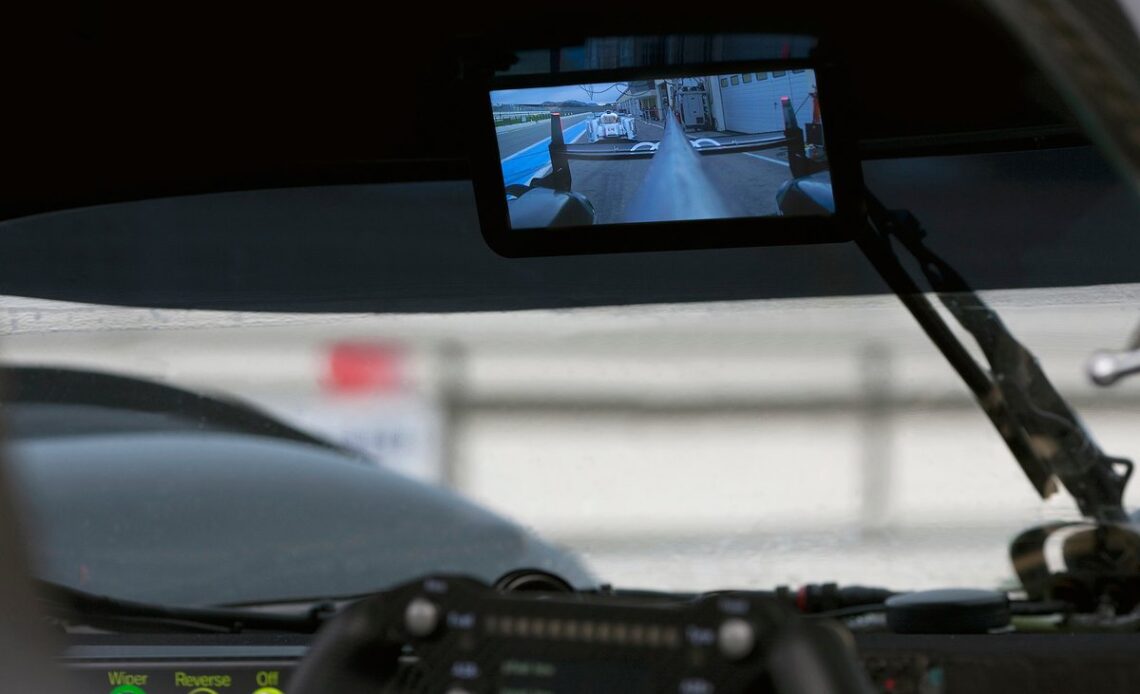With car designers always keen to make mirrors interfere as little as possible with airflow over the car, the FIA has long had to push hard to enforce their size and position on safety grounds.
But for such a high-tech series like Formula 1, it seems out of place that it is still relying on an old concept of fixed mirrors that have been an ever-present on cars since they first raced.
Indeed, in an era of accurate GPS, on-board cameras and high-speed digital processing, it would seem logical for F1 to make the step and go cutting-edge.
That could mean making it mandatory for F1 cars to be fitted with rearward facing cameras that can display what is going on behind on to a small screen in the cockpit.
The idea of having rear-facing cameras and cockpit screens is nothing new in F1, and there were discussions several years ago between drivers and the FIA about the subject.
Carlos Sainz said back in 2018: “We’ve proposed having cameras, instead of a simple mirror, which is something that they have in other categories, and I think the FIA is going to have a look at it. But it is not something that has been clarified yet.
“It’s come from the drivers, we know other categories drivers have it. I think they have it in the WEC. It doesn’t mean that it’s going to come, but it could be an option.”
Digital rear view mirror with AMOLED technology in the Audi R18 e-tron quattro
Photo by: Audi Communications Motorsport
In-cockpit digital screens are indeed regularly used in other categories, and made their debut as long ago as 2012 in sportscars when Audi used them on its R18 at Le Mans.
Nowadays they are commonplace in WEC, and are also used in other categories like DTM.
But while the FIA is aware of how well they work elsewhere, there still remains some big hurdles before such in-car screens can make the transition to F1. The FIA’s single-seater technical director Nikolas Tombazis has explained three critical issues that need to be overcome before the screens can be considered for F1.
Asked by Autosport about the technology, he said: “We have given it consideration. It’s got three issues that need to be resolved.
“One is that there’s not much space for a TV screen in the cockpit. Second, it’s used sometimes in closed cockpit cars which have rather dark conditions inside, you can see if you put your phone in sunlight, you don’t want the drivers squinting to see if they can see something. So there’s that.
“Then, the…
Click Here to Read the Full Original Article at Autosport.com – Formula 1 – Stories…

